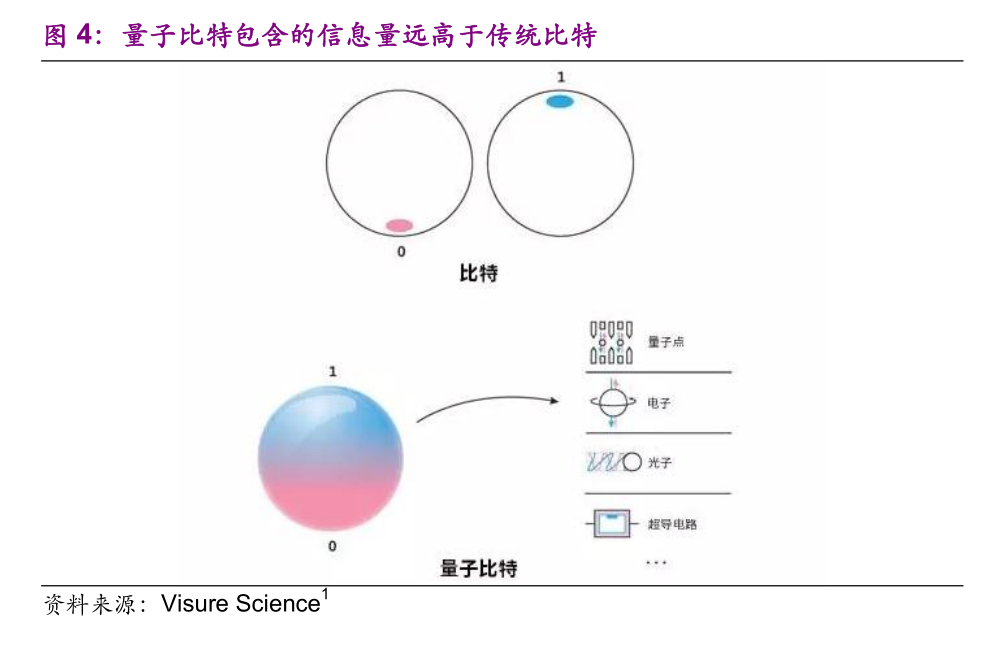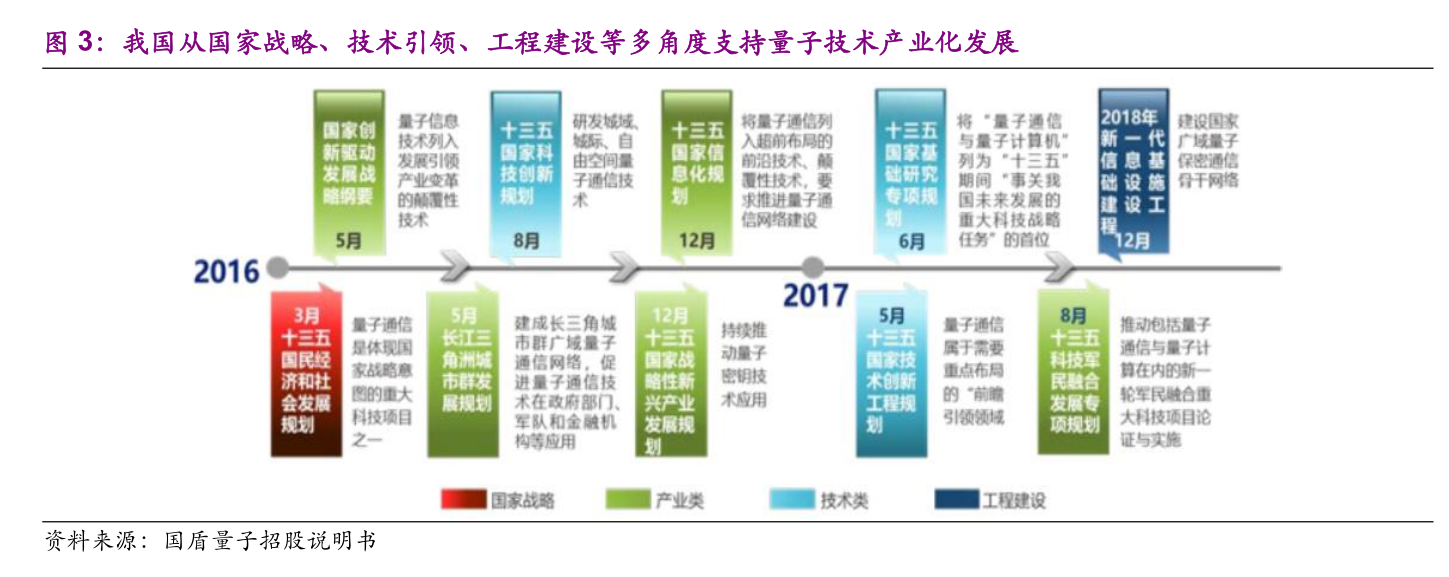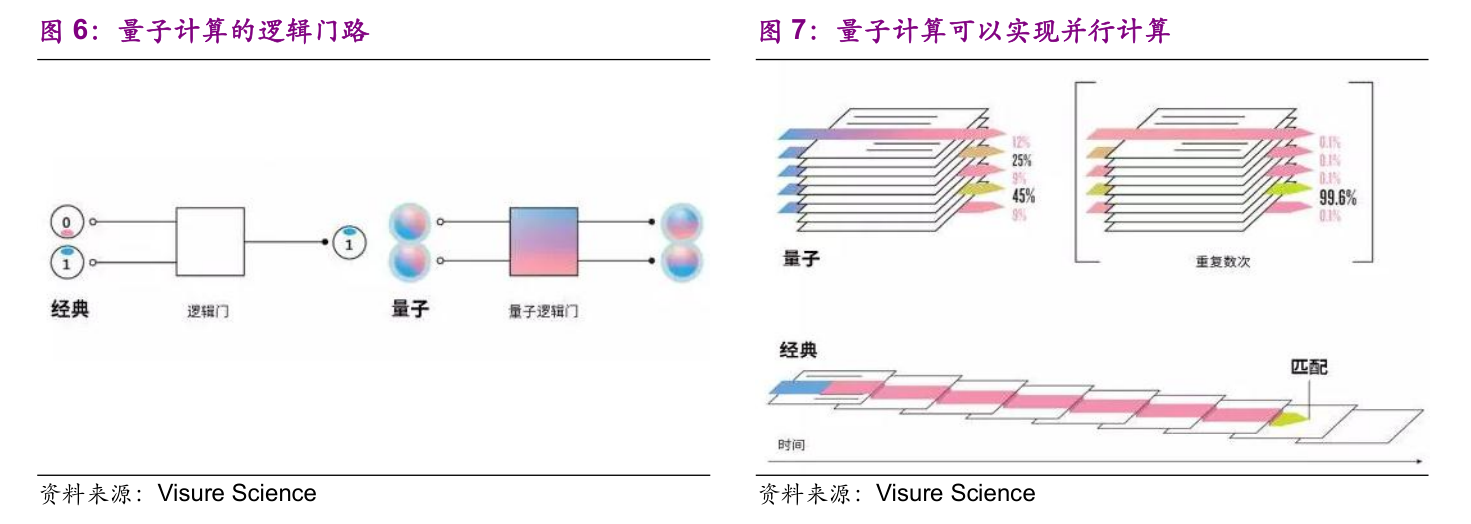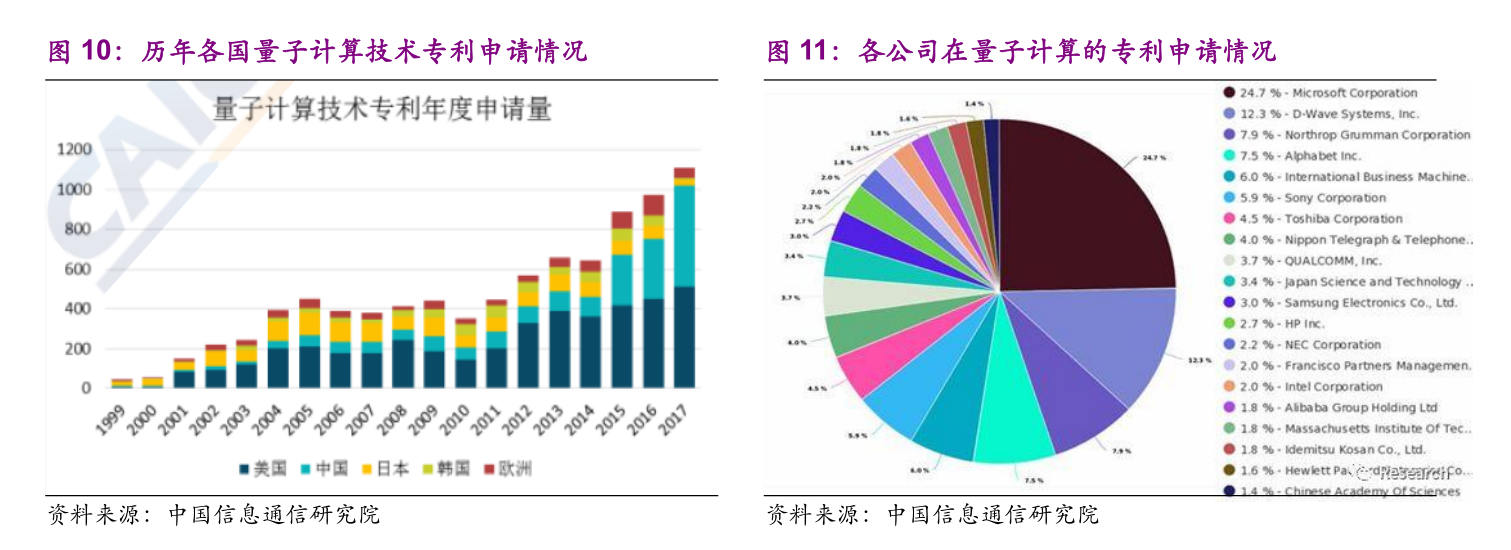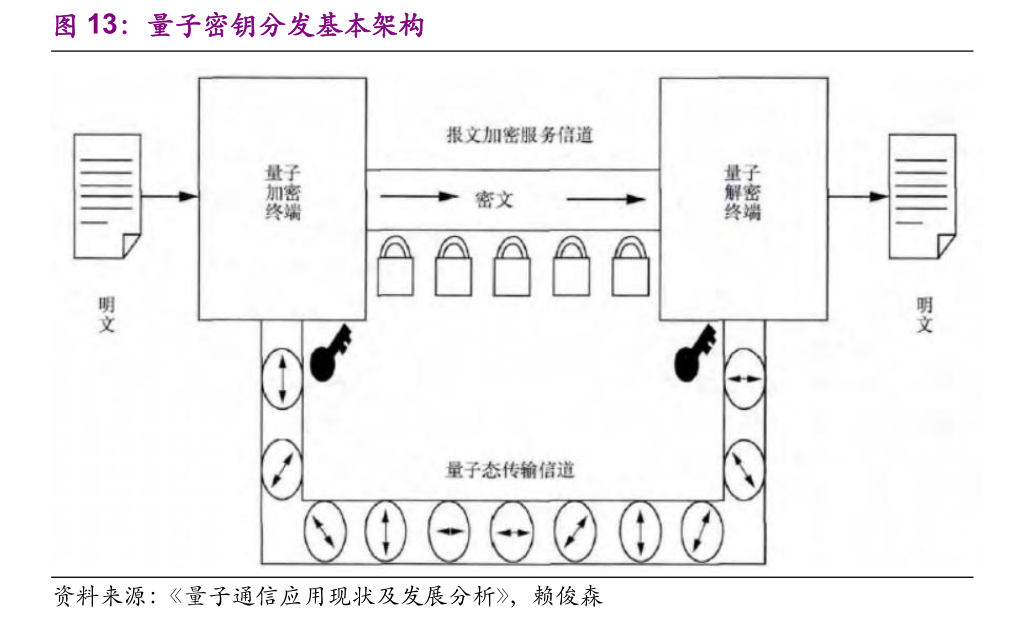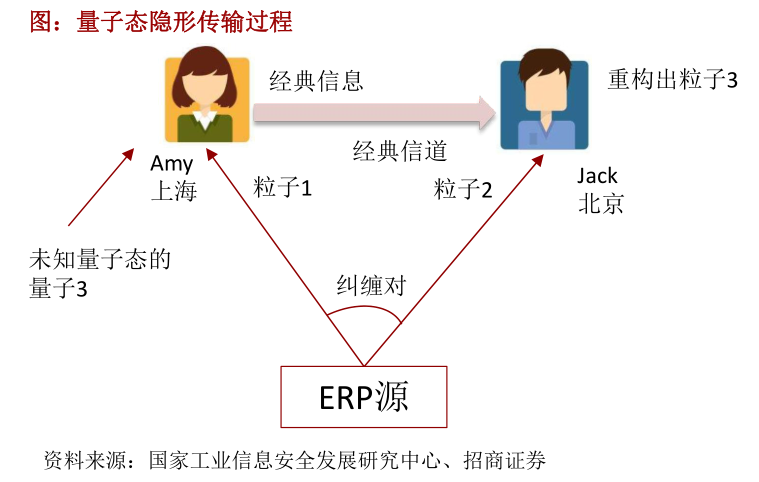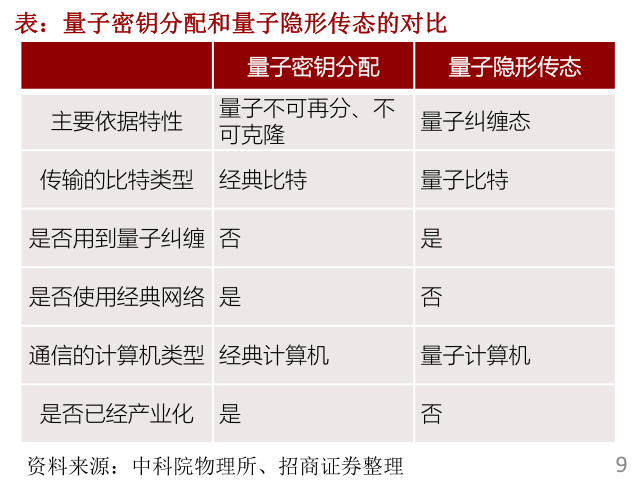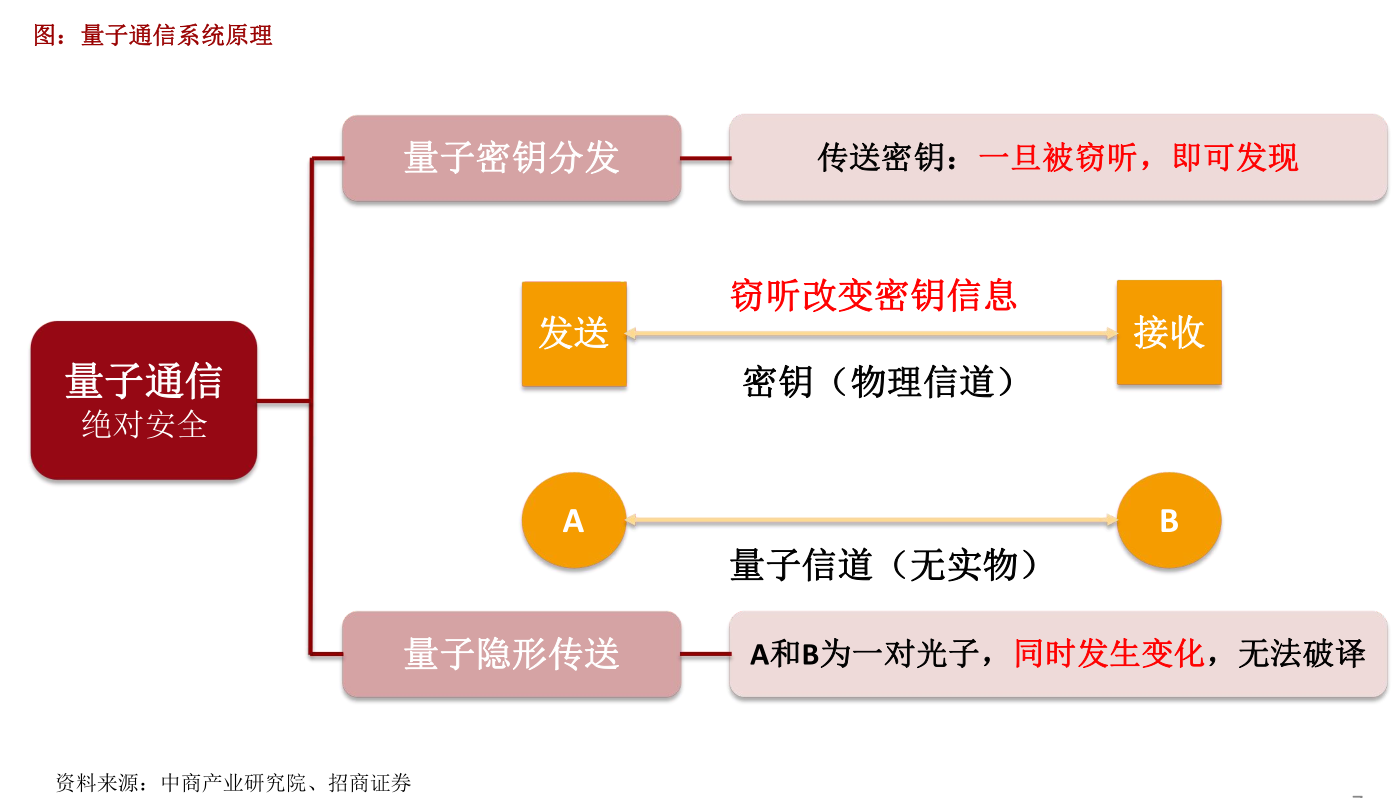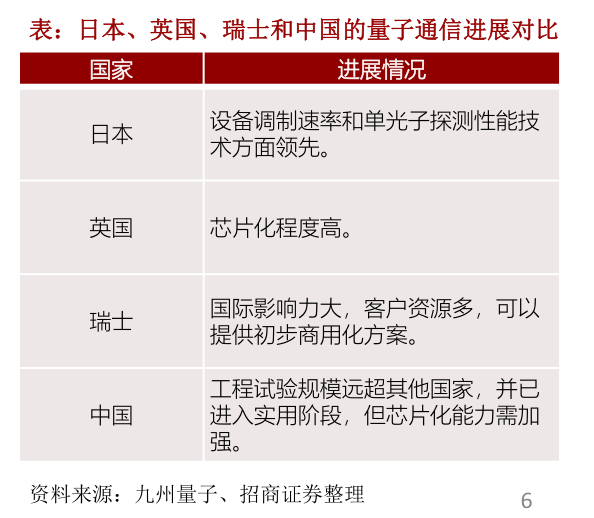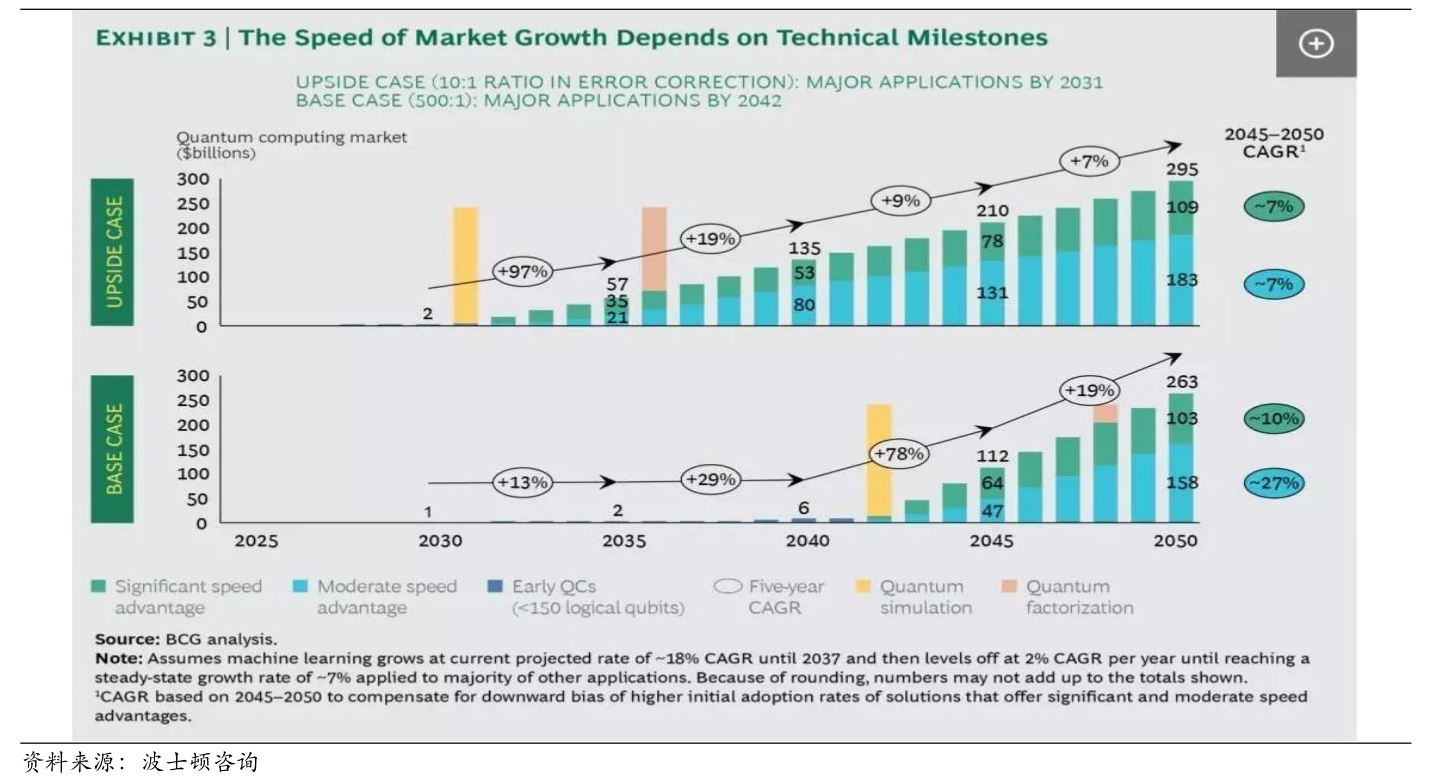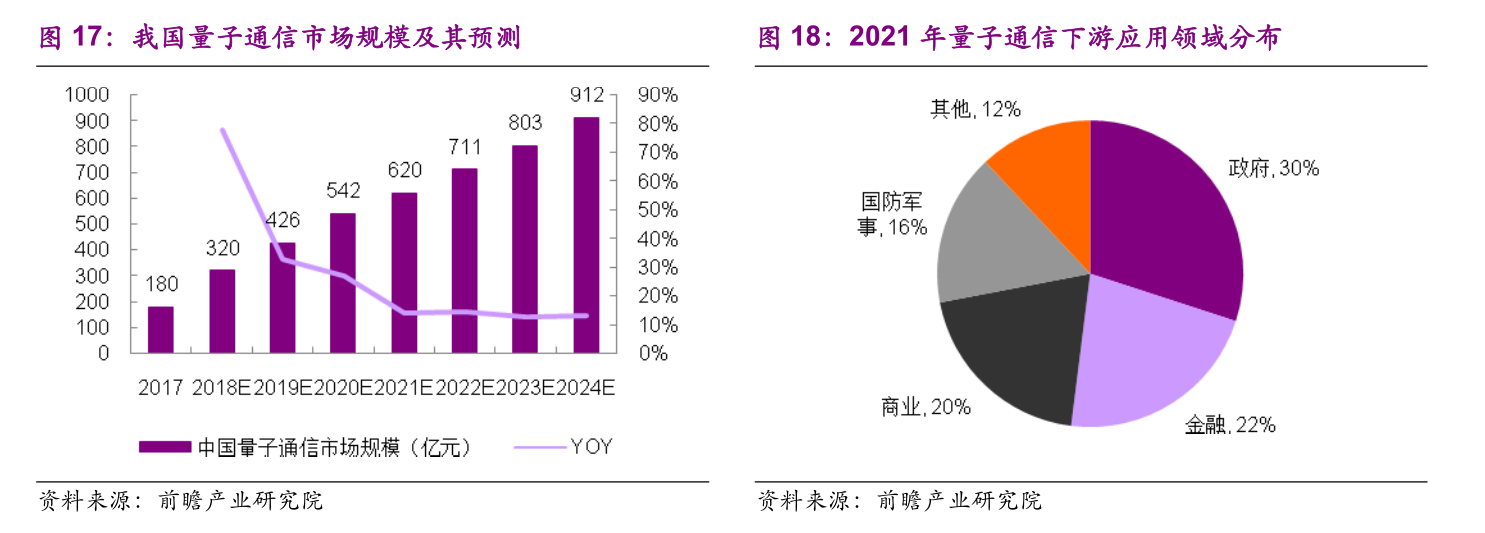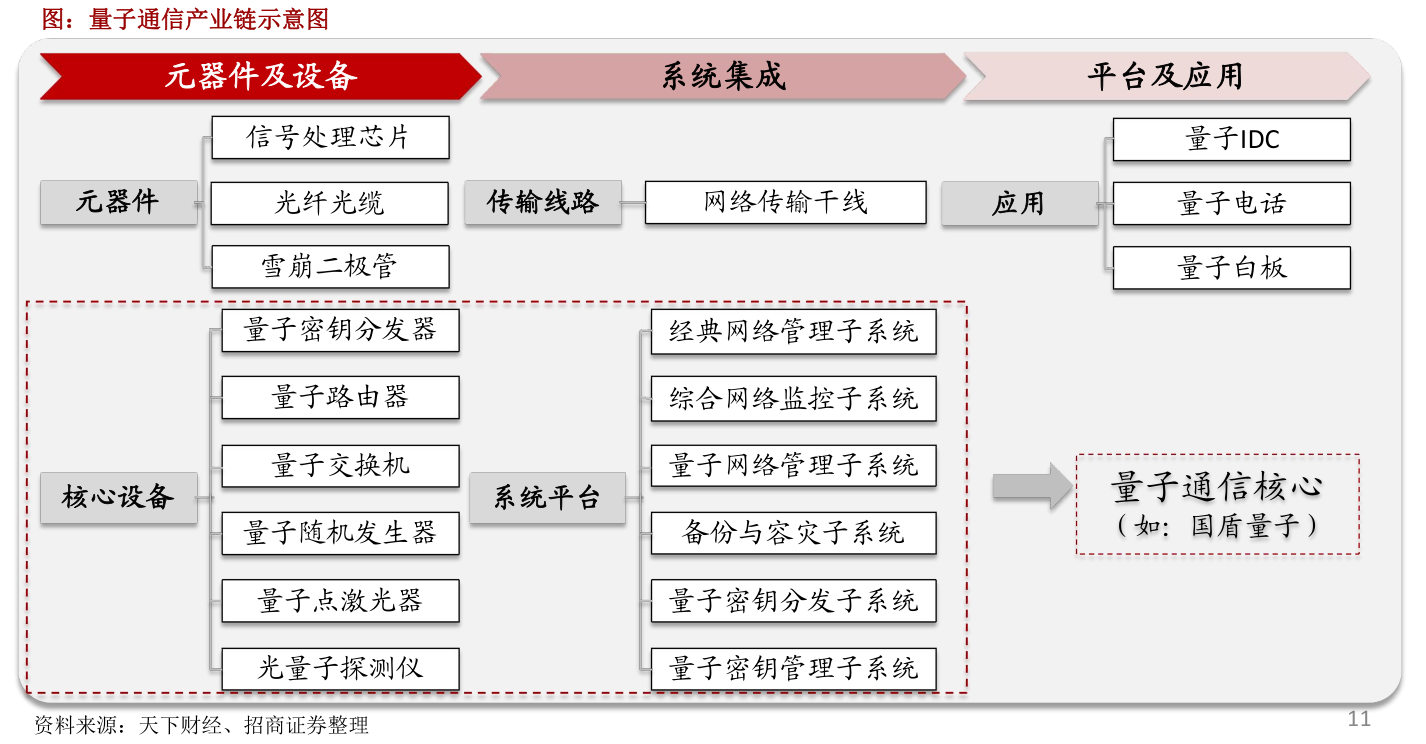The efficiency of quantum computing on specific algorithms is 100 million times faster than existing computers.
Quantum computers can easily decipher all passwords and will force all existing cryptography to be rewritten.
The key that the existing computer takes 600,000 years to decrypt, the quantum computer only takes 3 hours.
Compared with traditional communication methods, quantum communication is the only absolutely secure communication method.
Editor’s note: This article is from “Wall Street Knowledge”, author Qi Yue. Released with authorization.
The news about quantum technology was swiped over the weekend, but for many people, this concept is not yet familiar to them. So,What kind of “chess” is this quantum technology?
What is it?
Quantum information technology is a new subject at the intersection of quantum physics and information science, and its physical foundation is quantum mechanics. Quantum mechanics was first created in 1920 by scientists such as Einstein.
Since its inception, quantum science has bred new technologies such as atomic bombs, lasers, and nuclear magnetic resonance, making it one of the most important scientific discoveries in the 20th century.
Entering the 21st century, the second wave of the quantum technology revolution is coming.
The second quantum technology revolution will give birth to a number of emerging technologies such as quantum computing, quantum communication and quantum measurement, which will greatly change and enhance the way and ability of humans to obtain, transmit and process information.
Among them, quantum communication is more importantsecurity technology, which uses quantum state as an information carrier The communication technology of information interaction uses the nature of the indivisible and quantum unclonable principle of a single light quantum to ensure in principle that unauthorized parties cannot copy and steal the information transmitted in the quantum channel to ensure the security of information transmission.
China Everbright CertificateSecurities analysts Jiang Guoping and Wei Shugen believe that human beings are very interested in The exploration of the quantum world has gone from mere “probing The era” is moving towards an active “adjustment era”.
Basic Principles
Three basic principles of quantum information: qubits, quantum superposition, and quantum entanglement.
Qubit: Bit is the basic unit of classical computer information, either 0 or 1. A qubit is the smallest unit of information stored in a quantum computer. A qubit can represent 0 or 1, and can also represent the superposition of 0 and 1, that is, the superposition of 0 and 1 in any ratio. Therefore, quantum The amount of information contained in a bit far exceeds that of the classic bit that can only represent 0 and 1 (pictured below).
Quantum superposition: It means that a quantum system can be in a superposition of different quantum states. The famous “Schrödinger’s Cat” theory was once vividly stated as “a cat can be both alive and dead at the same time”.
Quantum entanglement: When two quanta are entangled together, one of them will affect the other, and it has nothing to do with distance and other factors. In short, no matter how far away the two quanta are, they can produce a kind of related interaction.
How important is it?
The research of quantum technology has become a major hot spot in the world of science and technology research. The international community has increased research and development efforts and investment, striving to seize the technological commanding heights.
In 2013, Japan planned to invest 40 billion yen in the research and development of quantum information technology in the next 10 years. The United Kingdom established the “National Quantum Technology Program” in 2014, with an annual investment of 270 million pounds for the establishment of four R&D centers for quantum communications, sensing, imaging and computing. In 2016, the European Union announced a 10-year “Quantum Technology Flagship Program” with a budget of 1 billion euros.
At present, the world’s leading quantum technology is the United States. In the past ten years, approximately US$200 million has been invested in research in various subdivisions each year. In 2018, almost US$1.275 billion was allocated for the development of quantum science within ten years.
China has gradually increased its emphasis on and support for quantum information technology in recent years. In 2018, Xi Jinping emphasized “the acceleration of a new generation of information technology represented by artificial intelligence, quantum information, mobile communications, Internet of Things, and blockchain. Breakthrough applications” further affirmed the strategic position of quantum information.
At present, industrial capital has accelerated its deployment in the field of quantum information. Everbright Securities predicts that the industry will enter a period of rapid development from 0 to 1.
Three major areas: computing, communication, and measurement
Quantum computing
In 1981, Nobel physicist Feynman first proposed the concept of a quantum computer. From the time it was first proposed to the present, quantum computing theory has been developed for more than 30 years.
Feynman pointed out that through the application of quantum mechanical effects, the computing speed of a computer can be greatly increased. A classical computer needs billions of years to decipher a password, and a quantum computer can decipher it in 20 minutes.
China Merchants Securities Zhang Xia and Chen Gang introduced that the core advantage of quantum computing is the realization of high-speed parallel computing. The number of qubits in quantum computers increases exponentially, and computing power will increase exponentially. At present, non-universal quantum computers have realized 1000 qubits, and the calculation efficiency on specific algorithms is 100 million times faster than that of classical computers.
The advent of the 5G era can be described as a fish in water for quantum computing. Zhang Xia and Chen Gang made the following bold predictions:
In the 5G era, the speed of data explosion will be more violent than ever. In 2020, everyone can share the amount of data above 5200 GB, and nearly 40% of the information may be “touched” by the cloud provider; about one-third of the data, that is, more than 13,000 EB of data, will have big data value.
Based on the existing computing power, in the face of such a huge amount of data, the training and learning process of artificial intelligence will become extremely long, and even the most basic artificial intelligence will not be realized at all. Because the amount of data exceeds the upper limit of the memory and processor, this will greatly limit the development and application of artificial intelligence.
The Zhang Xia team stated that quantum computing will enable humanThe main application scenarios for the mobilization of industrial intelligence include: vehicle-mounted intelligent systems, intelligent systems for drones, or artificial intelligence systems on mobile phones.
However, Everbright Securities believes that quantum computers are not an enhanced version of traditional computers, nor will they replace classic computers.
Quantum computers excel at performing tasks that are too complex for existing computers, especially those tasks that require searching in big data and decomposing large numbers into prime factors. According to Everbright Securities, the main differences between quantum computers and classical computers are:
1. The biggest difference is the different calculation methods. The calculation unit of traditional computers is bits, which are the 0 and 1 in binary. The unit of operation of a quantum computer is a qubit, which is a superposition state, which may be 0 or 1.
2. Based on the principle of quantum entanglement, a quantum computer can perform parallel operations on multiple lines at the same time, which means it can analyze all possibilities at the same time. This is also the super powerful information processing capability of a quantum computer.source. Just like finding a name in a pile of business cards, traditional computers analyze one by one, while quantum computers scan multiple business cards at the same time and give the probability that each business card is “correct”. After several iterations, the cumulative probability of the target business card will be higher than that of other business cards. Even if it is run multiple times, this algorithm is much faster than classic search. The larger the database, the greater its advantage.
3. Quantum computing can realize reversible computing through unitary transformation.
Because of the rapid parallel computing and quantum behavior simulation, thereby redefining programs and algorithms, quantum computers can have good advantages in some specific application scenarios, such as encrypted communication, drug design, traffic management, weather prediction, artificial intelligence , Space exploration and other fields.
How powerful are quantum computers? Everbright Securities cited an example:
In the field of encrypted communication, all existing cryptography must be rewritten, because quantum computers can easily decipher all passwords.
If the classic RSA algorithm uses a 400-digit integer to make an RSA key, it will take 600,000 years for existing computers to decipher, but quantum computers only take 3 hours.
InvestmentSecurities Zhang Xia and Chen Gang even predict that with the development of quantum computers, Moore’s Law may fail within 10 years:
The computing power of classic computers tends to be a bottleneck. The existing chip design process has reached within 10 nanometers, and after reaching the 2 nanometer level within a few years, the transistor can only hold 10 atoms, the behavior of electrons will no longer obey the traditional semiconductor theory, and the transistor will no longer be reliable. . After Moore’s Law reaches the bottleneck, the only way to increase computing power is to increase the number of chips.
In the past ten years, a large amount of capital has entered the field of quantum computing research, and quantum computers have gradually moved from the “laboratory stage” to the “engineering application stage”.
In 2007, the start-up company D-WAVE Systems of Canada announced the successful development of a 16-bit superconducting quantum computer; after that, giants such as Microsoft, Google, IBM, and Intel announced their entry into the field of quantum computer research and application.
In the field of quantum computing, China is still focusing on theoretical research. There is only one start-up company in China. In the past two years Alibaba, Baidu and Huawei and other technology giants have paid attention to and increased their investment in the field of quantum computing.
Quantum communication
Quantum communication is a communication method that uses a quantum state to carry the information to be transmitted, and uses quantum entanglement as a channel to transmit the quantum state from A to B.
According to the introduction of Everbright Securities, compared with traditional communication methods, quantum communication has absolute advantages in ensuring information security, increasing the amount of information transmission, transmitting information efficiently, and having strong anti-interference ability. It is the only mathematical method so far. Strictly proven absolutely safe communication method.
According to whether the transmitted information is classical or quantum, quantum communication is divided into two categories: quantum key distribution and quantum state teleportation. The following is the popular science done by Everbright Securities:
Quantum Key Distribution (QKD): Secure key sharing between the sender and receiver of information, and achieve secure communication between the two parties by means of one-time encryption. Utilize the unmeasurability and unclonability of quantum to realize the non-eavesdropping of information. First, realize the secure key sharing that cannot be eavesdropped between the sender and receiver, and then combine with traditional confidential communication technology to complete the encryption, decryption and security of classical information. transmission. This is the current mainstream and industrialized technical route on the market.
Quantum State Teleportation (QT): Based on the distribution of quantum entangled states and quantum joint measurement, the direct transmission of quantum state information is realized, and the information carrier itself is not moved during the transfer of quantum information. Similar to classical communication, long-distance quantum communication will experience weakening of entanglement. Therefore, it is necessary to establish a quantum relay to ensure smooth quantum communication. Currently in the frontier research stage, there are still difficulties in landing.
Among them, according to the team of Yu Jun, the chief analyst of China Merchants Securities’ communications industry, quantum teleportation can use quantum entanglement to transmit unknown quantum states to remote locations without the need to transmit the substance itself.
Quantum key distribution is the most important application method of quantum communication at this stage, and it has been put into commercial use. Quantum teleportation is at the stage of basic laboratory research at home and abroad, and it is difficult to obtain commercial applications in a short period of time.
In the field of segmentation, secure communication is the first to enter the practical technical direction in the field of quantum information.
The Yu Jun team of China Merchants Securities believes that quantum communication cannot completely replace traditional confidential communication. Differentiated and coordinated development can be formed between the two.
Traditional confidential communication is an encrypted communication based on mathematical algorithms and using cryptographic technology within the scope of modern cryptography. Traditional secure communication technology has high maturity, complete technical system, and low deployment cost. However, its algorithm can be cracked by quantum computing in the future. Its technological development trend is a new cryptographic algorithm (PQC) that is resistant to quantum computing, which has not yet been used.
Quantum security confidential communication is based on a physical mechanism and has information theory security against computational cracking. The product has It is practical, but the technical standard system is still under construction, the cost is high, and the technology and application are still in the promotion period.
Quantum communication is currently still in the pilot application stage. With the upgrading of technology and the reduction of costs, there will beLooking forward to business expansion.
China is the world leader in the number of applications of quantum communication and the scale of network construction. The scale of quantum communication engineering experiments far exceeds that of other countries, and the research results have gradually entered the practical application stage. In addition, many construction records lead the world. In 2017, my country built the world’s first commercial quantum secure communication line-the “Beijing-Shanghai Trunk Line”, which is more than 2,000 kilometers long.
However, China needs to further strengthen its chips.
What is the market potential?
For the quantum computing market, Boston Consulting Group predicts that, conservatively, the quantum computing market will reach US$2 billion by 2035. By 2050, the market size will soar to 260 billion US dollars.
If physicsqubit the bottleneck of error rate can be overcome, the error rate is significantly reduced, then In 2035, the quantum computing market will reach 60 billion U.S. dollars and increase to 295 billion U.S. dollars in 2050.
For the quantum communication market, Yu Jun’s team at China Merchants Securities believes that in the long run, industrial application scenarios are very broad, including network information security, quantum communication trunks, quantum metropolitan area networks, finance, national defense, and science and education applications. If only considering the construction of quantum trunk lines and quantum metropolitan area networks, the scale of investment in quantum communications construction is expected to reach the level of tens of billions. Considering long-term extensive applications in defense, finance, government and other fields, the overall market for quantum communicationsThe scale is expected to exceed 100 billion.
Data from the Prospective Industry Research Institute shows that in 2017, the market size of China’s quantum communications industry reached 18 billion yuan, and by 2018 it will reach about 32 billion yuan, and it is expected to reach 91.2 billion yuan by 2024.
What do you care about?
The Yu Jun team of China Merchants Securities believes that the current main application scenarios of quantum communication networks are still concentrated in short-distance metropolitan area networks/local area networks. As the deployment of quantum communication networks expands, it will drive the demand for optical fibers to a certain extent.
Quantum communication usually transmits single photons through optical fibers. Since single-photon quantum state signals and traditional optical signals are mixed and transmitted with optical fibers, performance will be degraded. Therefore, the networking of quantum communication systems usually requires additional independent optical fiber link resources.
As of the end of 2018, the total length of the practical optical fiber quantum communication network in my country has reached more than 7,000 kilometers. In the future, with the gradual expansion of the wide-area quantum communication backbone network, it is expected to continue to drive the development of the upstream optical fiber market.
The quantum communication industry chain mainly includes components, core equipment, transmission trunks, system platforms, downstream applications and other links.
Among them, the upstream is mainly components and quantum core equipment, such as: National Shield Quantum、< a class="project-link" data-id="88281" data-name="Shenzhou Quantum" data-logo="https://img.36krcdn.com/20200729/v2_88adf5715e864e55825442ff819c4d77_img_000" data-refer-type="2 "href="https://36kr.com/projectDetails/88281" target="_blank">Shenzhou Quantum, etc. At present, there are few participating companies and an oligarchic pattern. The midstream mainly includes network transmission backbone providers and system integrators, such as: Digital China etc. The downstream is mainly a variety of industry applications, mainly involving finance, military, government and other fields.
